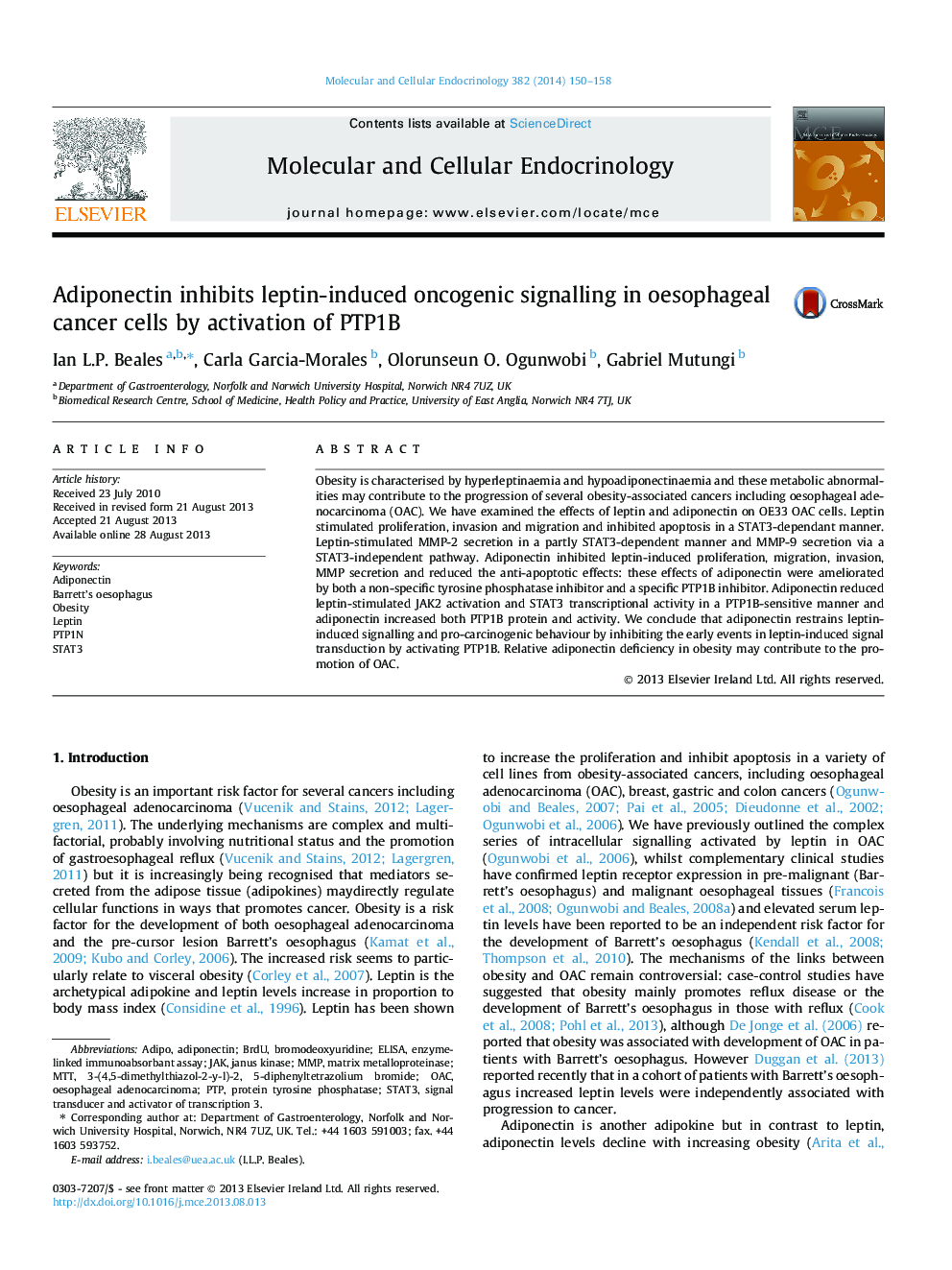| Article ID | Journal | Published Year | Pages | File Type |
|---|---|---|---|---|
| 10956116 | Molecular and Cellular Endocrinology | 2014 | 9 Pages |
Abstract
Obesity is characterised by hyperleptinaemia and hypoadiponectinaemia and these metabolic abnormalities may contribute to the progression of several obesity-associated cancers including oesophageal adenocarcinoma (OAC). We have examined the effects of leptin and adiponectin on OE33 OAC cells. Leptin stimulated proliferation, invasion and migration and inhibited apoptosis in a STAT3-dependant manner. Leptin-stimulated MMP-2 secretion in a partly STAT3-dependent manner and MMP-9 secretion via a STAT3-independent pathway. Adiponectin inhibited leptin-induced proliferation, migration, invasion, MMP secretion and reduced the anti-apoptotic effects: these effects of adiponectin were ameliorated by both a non-specific tyrosine phosphatase inhibitor and a specific PTP1B inhibitor. Adiponectin reduced leptin-stimulated JAK2 activation and STAT3 transcriptional activity in a PTP1B-sensitive manner and adiponectin increased both PTP1B protein and activity. We conclude that adiponectin restrains leptin-induced signalling and pro-carcinogenic behaviour by inhibiting the early events in leptin-induced signal transduction by activating PTP1B. Relative adiponectin deficiency in obesity may contribute to the promotion of OAC.
Keywords
Related Topics
Life Sciences
Biochemistry, Genetics and Molecular Biology
Cell Biology
Authors
Ian L.P. Beales, Carla Garcia-Morales, Olorunseun O. Ogunwobi, Gabriel Mutungi,
